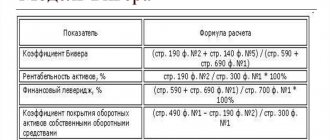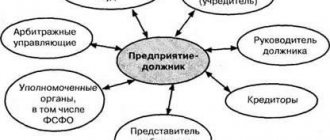Pros and cons of the professionImportant qualitiesWhere to studyAnti-crisis manager coursesSalary of an Anti-crisis managerSalary as of 09/08/2020
Crisis management is a relatively new type of activity. The profession is suitable for those who are interested in economics (see choosing a profession based on interest in school subjects). In 2020, the ProfGid career guidance center developed an accurate career guidance test. He himself will tell you which professions are suitable for you, and give an opinion about your personality type and intelligence.
An anti-crisis manager is a manager of the highest class who can analyze a business, identify weak and strong points and develop a number of measures that allow the owner to overcome the crisis with minimal losses. According to a court decision, the anti-crisis manager is trying to save an enterprise that is in a state of bankruptcy. On the one hand, this specialist must eliminate debt to creditors, and on the other, help the enterprise “get back on its feet,” take care of employees and maintain industrial potential. If the enterprise cannot be restored, the manager must sell it at a profit and use the proceeds to pay off debts.
Features of the profession
Only a highly professional economist-manager can find a way out of a difficult situation. He often has to work in a hostile environment, where conflict is heated to the limit. Debts, dissatisfied workers, a hidden war with those who brought the enterprise to bankruptcy are a common situation. The profession will require not only deep knowledge of economics, finance, management, but also courage.
Anti-crisis managers perform the following functions:
— identification and notification of identified creditors of the debtor about the initiation of bankruptcy proceedings;
— analysis of the debtor’s financial condition;
— determining the presence of signs of fictitious and deliberate bankruptcy;
— receipt and consideration of established creditor claims;
— compiling and maintaining a register of their requirements;
— conducting an inventory of the property of the debtor enterprise and analyzing its condition;
— taking measures to protect the property of the enterprise;
— registration of property rights to real estate;
— property assessment, drawing up a report according to the approved standard form;
— optimization of financial flows;
— conflict management;
— implementation of the decision of the arbitration court on the implementation of one of the bankruptcy procedures with full personal responsibility for its implementation.
Real methods of anti-crisis enterprise management
Manual control
Based on experience, it can be argued that the absence of the expected result in financial terms indicates insufficient internal control. To avoid losses, it is necessary to centralize decision-making that determines the movement of inventory and employees. That is, only the owners or their authorized persons should manage the enterprise.
Optimal reporting
When financial problems arise, the need for internal reporting increases. Its usually common forms need to be revised and assessed from the other side of the main parameters and calculation methods.
Compression in time
Naturally, large companies cannot be completely “usurped” by entrusting all management decisions to one manager. Therefore, the crisis situation requires a reduction in the timing of internal reporting.
Cost reduction
The first measures to eliminate the crisis should not include a total reduction in budget expenditures. The main costs, the most important ones, cannot be reduced. Otherwise, the consequences could be dire.
Shock therapy
In a crisis situation, it is necessary to reduce some expenses and increase others that can bring “quick” money. How long will it take to get this profit? This depends on the riskiness of the measures taken by the company to achieve its goal. The importance of the right bet cannot be overestimated. They usually rely on marketing costs (aggressive advertising, unconventional sales methods, entering new markets).
All in
It is possible to allocate sufficient funds for activities in the highest priority areas, not only by reducing expenses on other items. In this regard, it may be necessary to attract borrowed funds (credit resources) from outside. This is an “extreme” method, since getting a loan is quite difficult for objective reasons.
You may also be interested in: About B2C marketing in simple words
Pros and cons of the profession
pros
The profession is considered extremely prestigious. The services of an experienced specialist are always in demand. Creditors who are satisfied with the results of the manager’s work advise their friends who are in a similar situation to contact him. Business owners, frightened by the prospect of losing their business, usually do not skimp on compensation. The motto of a competent anti-crisis manager is not “get everyone out of the gate,” but “save at any cost.” The renewed company, having improved its affairs, will ultimately create new jobs. And a specialist who has saved more than one enterprise from complete ruin and closure can count on continuing a successful career.
The best anti-crisis strategies for enterprise management
Wave
The process of anti-crisis management of an enterprise according to this strategy involves using problems in the activities of competing enterprises to attract their clients to their side and expand market share.
When a tsunami occurs in the ocean, the size of the wave is small at first, but as it moves forward it grows, and the wave gradually carries away more and more water. An analogy can be drawn with the wave of business: at first it is small, but gradually grows, attracting more and more new consumers.
When a company is in a crisis situation, its relationships with customers often deteriorate. The company goes into saving mode, and consumers are dissatisfied with rising prices, deteriorating quality of service, and a decrease in the quality of products and services. This situation can be used to lure clients to a small company, the quality of service in which will be high even during a crisis.
Storm
The basis of this anti-crisis strategy is to increase employee motivation for vigorous activity.
In a storm at sea, the ship's crew concentrates and takes active action to achieve the main goal - to get out of bad weather with minimal losses, since the fate of each crew member depends on this. It’s the same in business: during a storm, you need to work towards uniting the team and motivating it to take active action.
Calm
There is also a strategy for anti-crisis financial management of enterprises. Its essence lies in the complete absence of any action during a crisis situation. Following it involves lying low and waiting, but not passively. This time should be used productively. During this period, the main task is to improve the business.
New Horizons
The latest crisis management strategy. Its essence is that during a crisis, the company is looking for new directions, the development of which has good prospects.
If a ship whose size does not allow it to survive is caught in a storm, the only way to survive is to quickly take shelter in a harbor sheltered from the wind. Let's draw an analogy with business: if the management of a company understands that it will not be possible to get out of the crisis by continuing to work in the same direction, it must begin to choose a new niche in the market that allows it to keep the business profitable even during a crisis.
You may also be interested in: Business ideas for 2020
Place of work
Enterprises and organizations of any form of ownership that are at the stage of bankruptcy.
Students of the specialty "Crisis Management" are willingly invited to practice and internships by such companies as: State Institution "Moscow Aviation Center", JSC "VSMPO-AVISMA Corporation", LLC "Audit-Balt", CJSC NPO "Mobile Information Systems", CJSC " VTB 24", CJSC Severstal-Resource, CJSC Investment, OJSC Federal Center for Project Finance, Committee of Economics of the Chita Region, LLC EXPERT-FINANCE and other organizations.
An example of anti-crisis management of an enterprise

The well-known network of household appliance stores from Europe, Eldorado, was in crisis in 2008 after the tax authorities announced a debt of 15 billion rubles. The company's reputation was damaged, banks demanded immediate repayment of debt (in the amount of $400 million), and regular suppliers stopped cooperating with the company. We will analyze the anti-crisis management of the enterprise since 2008.
Although there were problems, the company stayed afloat. A loan provided by an international investor played a major role. The loan amount was $500 million. Subsequently, the creditor acquired a controlling stake from the owner of Eldorado, becoming the sole owner of the company. He still is to this day.
After the purchase, the new owner began to carry out anti-crisis measures, which turned out to be very effective - losses amounted to only 1% of sales.
The anti-crisis program included the following stages:
- Changes in commodity and transport logistics. Consignments of goods in warehouses were reduced, and orders of small volumes began to be delivered. This helped reduce transportation costs.
- Introduction of “sample sales”. This system involves the supply of products to consumers from the manufacturer. In this case, the organization itself acts as an intermediary and takes a commission for the transaction. This made it possible to reduce the cost of storing products in warehouses and minimize the risk of unsold goods.
- Reduced employee costs. The management staff was reduced, managers received twice as many subordinates. By reducing the staff of managers, it became possible to hire more consultants working to increase sales at retail outlets. About 12 thousand workers were laid off.
Such events allowed the company not to sink and remain competitive in the market. But when management made decisions, serious mistakes were also made.
For example, one of their wrong decisions was to make conditions for staff more stringent. Their wages were reduced. In addition, they were assigned additional functions, while the performance of their main duties became less quality. The reward system was also removed.
The consequence of such measures was mass layoffs of their own free will. Even workers with extensive experience, whose work experience was more than 3 years, refused to work.
The company's staff became less qualified, which could not but have a negative impact on its service. Sales have decreased, but product returns have become more frequent, as have bad customer reviews. The reason was the lack of professionalism of the consultants. Even regular trainings and expensive training programs, often conducted by Eldorado, cannot eliminate it.
This example clearly shows that you should not skimp on employees. The consequences of this will be negative. The Eldorado company has found a competitor in the form of the M.Video company. Now they are saying that a merger of these organizations or a buyout of Eldorado M.Video is not ruled out.
Based on the foregoing, we can conclude that the enterprise crisis management system should be developed for each organization individually, taking into account its characteristics.
You may also be interested in: The most effective ways to promote an online store
Important qualities
A person who has not only a diploma, extensive knowledge from various fields, but also certain life experience, as well as:
— availability of analytical skills; ability to quickly navigate in complex environments;
— the ability to analyze the situation in the long term, recognize the potential impact of external and internal factors, assess development prospects (see weaknesses, strengths, opportunities and risks);
— willingness to resist external influence;
- the ability to separate the subjective-emotional attitude from objective reality and facts;
— high performance in conditions of uncertainty and time pressure; ability to prioritize; work productively with documents; promptly resolve administrative issues; work in conditions of resistance; possession of skills to regulate emotional state;
— the ability to effectively interact at any organizational level, “listen and hear”, accurately convey your ideas without distortion and organize the mutual exchange of business information with partners (within the organization and with shareholders);
— conflict management (the ability to monitor crisis situations in a team, manage a conflict situation: neutralize and resolve conflicts);
— the ability to think on the scale of the entire enterprise and generate new solutions for the development or diversification of existing business; vision of opportunities, including non-obvious ones, the ability to realistically assess the situation and respond adequately when risks increase.
Identification of signs of crisis in the company’s activities
Timely diagnosis of the presence and determination of the degree of manifestations of the crisis is a guarantee of timely and effective anti-crisis solutions. The only correct basis for developing such decisions is an analysis of the dynamics of economic activity indicators and, on its basis, identifying the factors that led to the manifestations of the crisis. The list of measures that will help the company overcome it depends on the set of these factors.
From an economic point of view, enterprises are constantly at risk of being exposed to three types of crisis:
- A sales crisis arises both due to external factors (lack of competitiveness of the company’s products or services, a drop in the solvency of buyers, actions of competitors, etc.) and due to internal reasons (ineffective marketing policy, incorrect choice of sales and pricing model for selling products or services) . As a result, sales volumes fall to a level that does not cover the company’s variable and fixed costs.
- A cost crisis is primarily caused by internal factors such as the ineffective structure of business processes, weak control over the dynamics of variable costs, unreasonably high growth in fixed costs, low labor productivity, etc. A cost crisis entails the need to increase the selling price of products or company services in order to avoid business loss.
- The financial crisis is also mainly due to internal factors such as lack of an effective cash management system, poor balance of debts and inadequate credit policy of the company. It manifests itself in a lack of funds to support business activities and timely repayment of obligations to the company’s creditors.
Let us note that crises in the activities of companies do not arise all at once; they develop gradually, in several stages:
1. Pre-crisis state: revenue is falling, profitability is declining, cash gaps in operating cash flow are becoming more frequent, and overdue accounts receivable are growing.
2. Entering a state of crisis: the company’s activities become minimally profitable, there is a positive trend in the growth of borrowed funds and cash gaps, the company begins to experience constant difficulties in repaying its obligations to its creditors.
3. Crisis state: expressed in unprofitability of economic activities, constant cash gaps, low level of solvency and problems with attracting external financing. Overdue accounts payable are growing at a faster pace than the current one.
4. Bankruptcy: the company is unable to conduct business activities and is unable to repay its obligations to creditors.
Based on the foregoing, it is clear that in order to combat crises, an enterprise needs a management tool that would allow it, firstly, to promptly diagnose the presence of negative phenomena in business activities, and secondly, to effectively prevent or eliminate their consequences. Such a tool is the anti-crisis management regime.
Training to become an Anti-Crisis Manager
Courses
Russian Institute of Professional Education "IPO"
Russian Institute of Vocational Education “IPO” is recruiting students to receive the specialty “Crisis Management” through a distance program of professional retraining and advanced training. Studying at the IPO is a convenient and quick way to receive distance education. 200+ training courses. 8000+ graduates from 200 cities. Short deadlines for completing documents and external training, interest-free installments from the institute and individual discounts. Contact us!
Universities
St. Petersburg Law Academy
Jurisprudence (correspondence) (Faculty of Law (bachelor's degree))
Moscow Humanitarian University, Moscow State University
Enterprise Economics (Faculty of Economics, Management and International Relations)
National Research University "MPEI"
Economics (Engineering and Economic Institute of the National Research University "MPEI")
Moscow Technical University of Communications and Informatics
Economics (Correspondence General Technical Faculty of MTUCI)
Autonomous non-profit organization of higher education "Institute of Continuing Education"
Economics in construction and housing and communal services (Autonomous non-profit organization of higher education “Institute of Continuing Education”)
The economics faculties of many universities have recently introduced the specialization “Crisis Management”. This specialty allows you to gain in-depth knowledge in the field of anti-crisis diagnostics of an organization and its environment, anti-crisis business planning and modeling, financial recovery of an organization, and the legal basis of bankruptcy.
- MESI was the first Russian university to develop the theoretical foundations of the specialty, began training specialists in this profile, and is successfully developing this area today.
- Russian State Humanitarian University (RGGU)
- Financial Academy under the Government of the Russian Federation (FA under the Government of the Russian Federation)
- State University of Management (SUM)
- Moscow State University named after. M.V. Lomonosov (M.V. Lomonosov Moscow State University)
- Moscow Financial and Legal Academy (MFLA)
- Moscow Institute of Banking (MIBD)
- Moscow Institute of Economics, Management and Law (MIEMP), etc.
- Institute of Economics and Crisis Management (IEAU).
The curriculum is built taking into account the experience of leading universities in the world and includes the following disciplines: “Theory of crisis management”, “Practice of crisis management”, “Risk management”, “Anti-crisis PR”, “Social aspects of insolvency”, “Bankruptcy of certain categories of debtors”, “Foreign practice of crisis management”, etc.
When is anti-crisis financial management of an enterprise necessary?
Anti-crisis management of an enterprise presupposes strict adherence to systemic principles. The task of such a management system is to prevent or eliminate situations undesirable for business with the ability to maintain and strengthen market positions in any conditions, relying mainly on its own resources.
The reason for the crisis in the organization lies in the discrepancy between its financial and economic indicators and market parameters.
These parameters are divided into the following groups:
- external (they do not depend on the activities of the organization);
- internal (depending on it).
Each group includes several subgroups. External
The causes of the crisis are divided into:
1. Socio-economic factors of the overall development of the country:
- Increase in price level.
- Instability of the tax system.
- Instability of legislation performing a regulatory function.
- Fall in real incomes of citizens.
- Increase in the number of unemployed.
2. Market factors:
- Reducing the capacity of the domestic market.
- Development of a monopoly.
- Instability of the currency market.
- Increasing the supply of substitute goods.
3. Other external factors:
- Instability in the political sphere.
- Natural disasters.
- Crime problems in society.
Recommended articles on this topic:
- How to make a business successful and not become a “firefighter” for your company
- Monitoring the work of employees: types, methods, errors
- Remote employees: search, selection, registration
An enterprise crisis can be a consequence of such internal
factors:
1. Managerial:
- The commercial risk is very high.
- Market conditions have not been sufficiently studied.
- Financial management is not effective.
- Production cost management is not organized correctly.
- Management does not show flexibility in making management decisions.
- Accounting and reporting are carried out at a low level.
2. Production:
- There is no unity of the organization as a property complex.
- Fixed assets are outdated and their wear and tear is high.
- Labor productivity is low.
- Energy consumption is unreasonably high.
- A large number of social facilities.
3. Market:
- The products produced by the enterprise are uncompetitive.
- The enterprise depends on a small number of suppliers and customers.
Currently, the main problem for organizations is ineffective management. It is this that becomes an obstacle to successful business in a market economy.
The reasons for this problem are as follows:
- There is no clear business strategy: management motivates to achieve short-term results, but medium and long-term prospects are not considered.
- Managers do not have sufficient experience and qualifications.
- The level of responsibility of the organization's management to its owners for management efficiency, safety and effective operation of property, and performance results is low.
You may also be interested in: What is the ideal B2B marketing?
Content
- What is crisis management
- Anti-crisis management tasks
- Factors that are crisis
- What crisis management methods exist?
- Bringing a company out of crisis: stages
- Anti-crisis personnel management
- Methods of working with personnel in anti-crisis management
- Anti-crisis financial management
- Stages of restoring the financial stability of an enterprise
- How to make an enterprise resistant to crisis
- An example of bringing an enterprise out of a crisis situation
- Companies offering crisis management services
- Conclusion
In the activities of any enterprise or private company, a situation may arise when the results of the year are summed up, reports are submitted, but the results are not encouraging, but quite the opposite. There are overdue loans; suppliers no longer offer installment plans to pay for goods. In fact, there is a crisis situation.
Even if there are no such problems in your company now, the information will definitely not be superfluous, so today we will discuss how to prevent crisis phenomena.








